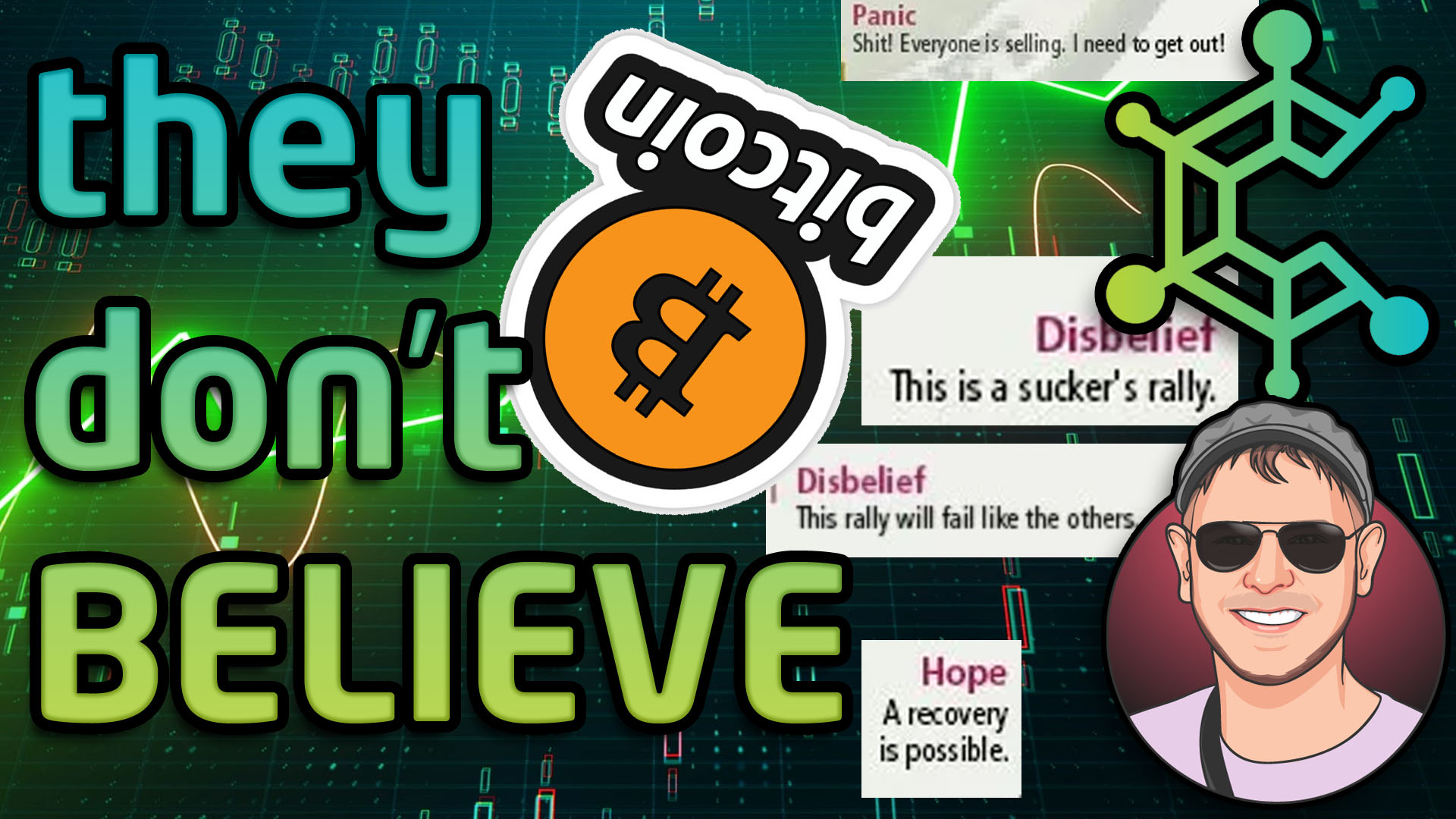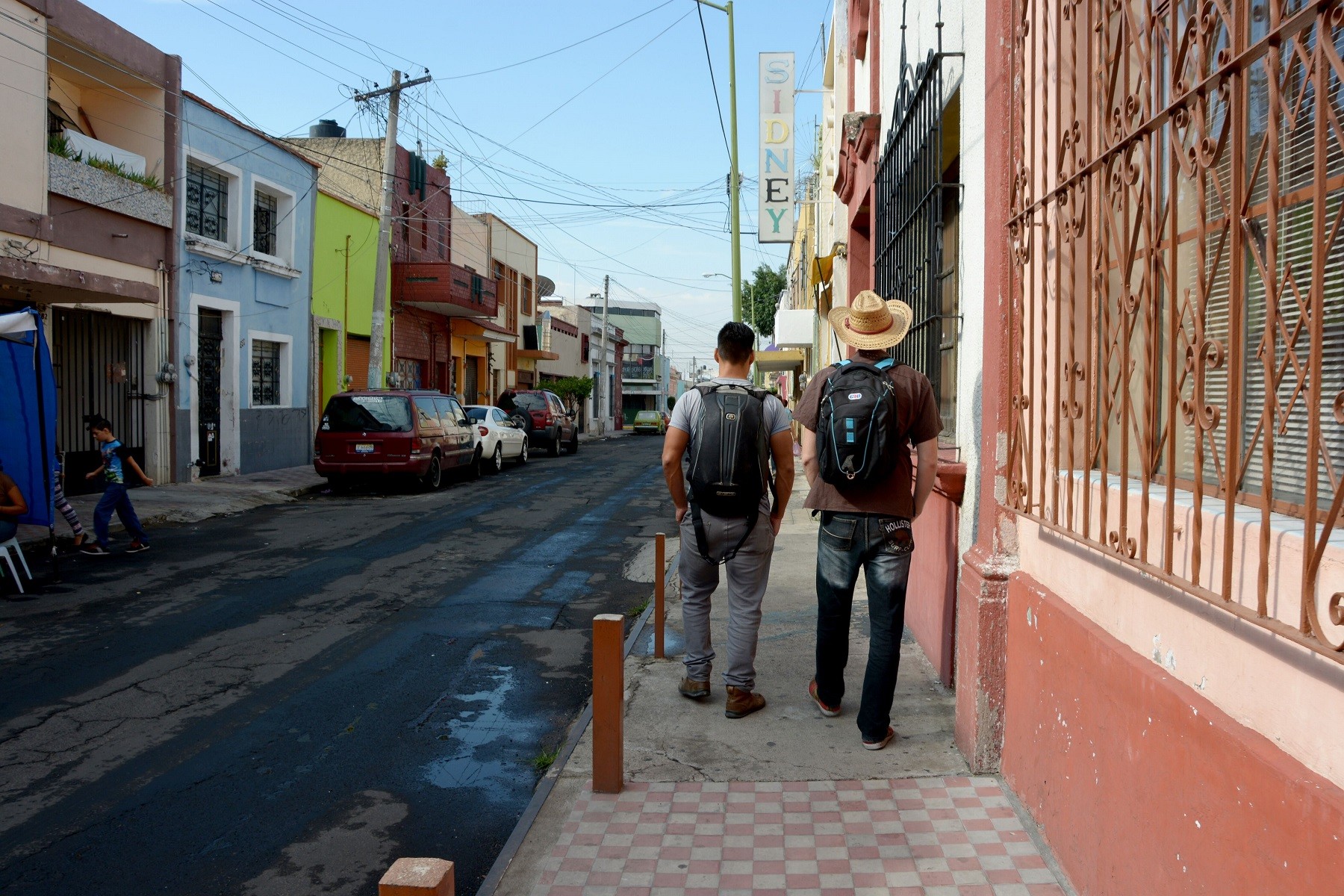
The total crypto market cap has gone up from 140 B to nearly 170 B over the last month. A lot of people out there are skeptical. They say the price is going to crash, the market is still manipulated, it’s a dead cat bounce.
Other people say “look at all this doubt, people are wary, the market isn’t coming back.”
It seems like a lot of people out there still don’t understand market cycles. Disbelief is a part of the cycle, and it might be a very positive one. How can you turn their skepticism to your advantage?
Scroll down to watch and listen to Cryptonomics!
Welcome to Cryptonomics, principles of cryptocurrency and investing. Thanks for tuning in, pressing like and subscribe, being a crypto bro, checking the description and connecting with me on all social media.
So, people are wary. Here are some comments I’ve seen on Twitter recently:
“Bitcoin was manipulated to $20,000 and heisted back down to $3500 in 18 months. Congratulations for bouncing back to $5,000. Ha ha ha. There are lesser fools everywhere.”
“WOW this thread is the example of fools who have invested and still expecting big return for a TOY money.”
“Dead cat bounce”
People are wary. People are really wary, and that’s good. I like it when people are wary. I don’t like it when people are going nuts jumping over their grandmas to buy bitcoin… that’s a sign that the market is overheated and overbought. Remember this important adage: “Be greedy when others are fearful, and fearful when others are greedy.”

Think back, if you can remember, all the way back to 2018. For the first quarter, whenever bitcoin moved up, there was a lot of noise. People started yelling on social media “Could this be the return? Have we seen a bottom???” And they were mistaken. It would rally, and then the rally would fizzle out and droop back like a sad panda.
Eventually, a lot of those people stopped posting. Many of the crypto Facebook groups I’m in went quiet over the following months. Then near the end of the year, I started to see a few bitter people returning to comment. People who stay in crypto groups just to tell others how little they believe in crypto.
Now with this recent rally, I’m seeing a lot of people say it’s false, it’s nonsense.
Previously rallies had a little hype around them, and when the hype died down, the rallies failed. Now crypto has a rally, and there’s very little hype – in fact, there’s a lot of doubt. That tells me that these movements are likely based on something other than hype.
One phrase which experienced traders and investors have heard many times is “It’s different this time.” It’s a phrase to listen out for, because when you hear it, you know it’s likely that the market is overheated. People say it when they believe that the market will go up forever. It’s a seductive phrase, because it always has a little bit of truth – things are always different this time, just not in the way that people believe.
Likewise, on the way down, people lose faith and they think that the bear market is different this time – that market cycles aren’t going to repeat. However, most of the time, they do.
Let’s talk about some things that change, and some things that stay the same. Let’s talk about access to cryptocurrency, and about the Halvening.
Access to crypto
When I first bought bitcoin in 2011, I had to go through a lengthy process – sending Aussie dollars to Paypal, converting them to USD, depositing to Virex, buying Linden dollars, and finally buying bitcoin – paying about 20% in commission. The next time was a lot easier, using Skrill, though they still charged me just to deposit my money.
Finally I could just walk into the bank and deposit cash into my Coinjar account. And now within the last few years people have been able to buy with credit cards, and on decentralised markets such as Bisq.
Every few months, there are new ways for people to get involved with cryptocurrency. It even keeps getting easier for people in countries where crypto is illegal.
So, every time the market goes up, it’s likely that more people will get involved, either as speculators, or using crypto practically.
The Halvening
Every four years, the rewards for bitcoin miners halves. That means the amount of money needed to sustain or boost the price also halves.
For example, as of May 2019, there are 1800 bitcoins produced every day. With bitcoin at $5,700, it takes about $10 million to maintain the price of bitcoin, assuming all of the miners are selling their bitcoins every day.
When the reward halves, it will only take $5 million to maintain the price of bitcoin, and that means the price is much more likely to increase.
The first time Bitcoin went through this halving process, in 2012, people weren’t really anticipating it, and the price increased very rapidly. However, in 2016, people were more ready and the price increased 3-6 months before the Halvening.
Then it started to increase again 3-6 months after the Halvening, partly because of this reduced selling pressure. Eventually the media started to take notice, and finally when an all-time high was reached, the media went into a frenzy, and that is a key part in forming one of these bubbles.
Bitcoin is such a dominant force in the market, and so many coins are traded in bitcoins, that an increase in bitcoin affects the whole market.
It’s likely that every time one of these bubbles happens, more and more people get involved, because they want to speculate or they find some practical use for it. In fact, the more speculation that occurs, the more hype, and therefore the more practical uses people find, because of the publicity.
A crash course in bubbles
Everyone who gets involved in cryptocurrency is going to get a crash course in bubbles, in mass psychology, in market cycles. This is important to the development of the human race. I saw about three bubbles in bitcoin, buying during two of them, before it clicked with me and I realised that the cycle was likely to continue, and if I wanted to get ahead, I had to be asmart and buy during the downtimes, the times when nobody was listening. In traditional markets, there tends to be a 7 year cycle. It might have taken 14 or 21 years for me to get those realisations. Now they’re coming rapidly, wapowapowapowa!
My long-term prediction is that more people are going to know about it, people are going to understand deeply and personally what bubbles are, what they look like and how they sound. That also means that a lot of people are going to become immune to market hype, irrational exuberance… People are going to be savvy investors, and that means the incidence of bubbles will go down.
People will start to learn that “it’s different this time” is a dangerous phrase, because it doesn’t tell the whole story.
Markets will start to smooth out, more people will invest in things that are valuable long term, less people will get taken advantage of. That means less scammers and more genuine projects, and more total wealth for humanity.
Thank you
Thanks for reading, watching and listening to Cryptonomics. Please like, share, subscribe, comment and connect with me on all social media. Most importantly, stay grateful!
You can listen and subscribe on Anchor and other podcasting services here:
